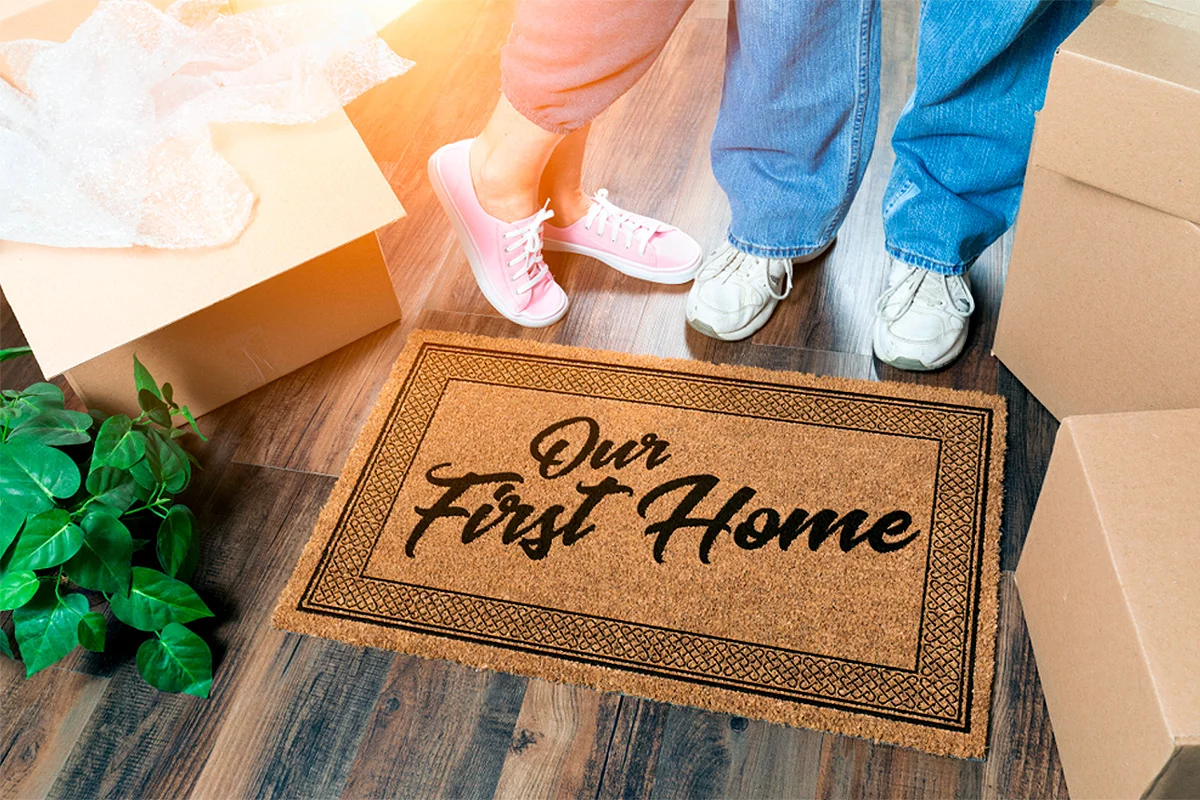If you have served in the military and require a mortgage, a VA loan could be a suitable option for you, whether you are purchasing a home or refinancing. Here is what you need to know.
What exactly is a VA home loan?
A VA loan is a mortgage that is guaranteed by the U.S. Department of Veterans Affairs and provided by private lenders like banks, credit unions, and mortgage companies. This type of loan can make the home buying process easier as it typically does not require a down payment.
VA loans are available only to qualified U.S. veterans, active-duty military personnel, and certain surviving spouses. The VA home loan program was established in 1944 by the GI Bill of Rights to assist veterans in transitioning to civilian life after World War II.
When considering a VA loan, it is beneficial to work with a lender and a real estate agent who have experience working with VA borrowers. The home will undergo a VA appraisal, and an experienced agent will assist in avoiding homes that do not meet the minimum required standards.
How VA home loans work
The VA’s guarantee ensures that if a borrower fails to make payments on a VA loan, the government will reimburse the lender for a portion of the amount. This guarantee reduces the risk for lenders, enabling them to provide favorable terms and eliminate the need for a down payment.
Compared to conventional loans, VA loan rates are typically lower. These rates can either be fixed, meaning that payments remain consistent, or adjustable, meaning that payments may fluctuate over time. It’s important to note that adjustable-rate mortgages (ARMs) come with some level of risk, as higher rates could result in increased payments.
If you meet the eligibility criteria, you have the option to complete the VA mortgage application process through a lender of your choosing. While not all lenders offer VA loans, many do, and some specialize in serving VA loan borrowers. It’s advisable to apply with multiple lenders to compare the rate offers available to you.
Eligibility for a VA home loan
If you meet certain criteria, such as those listed below, you may be eligible for a VA mortgage:
- If you’re an active-duty military member or veteran who meets the length-of-service requirements (90 days of service during wartime or 181 days of service during peacetime), you may be eligible.
- To meet the eligibility criteria, you must have served in the National Guard or Reserve for a minimum of six years. Alternatively, you may qualify if you have completed 90 days of active duty, with at least 30 consecutive days, under Title 32 orders.
- If you are the surviving spouse of a service member who passed away while on active duty or due to a service-connected disability, and you have not remarried, you can maintain your eligibility. Even if you remarried after the age of 57 and after December 16, 2003, you can still retain your eligibility. Additionally, spouses of prisoners of war or service members missing in action are also eligible for benefits.
- To qualify for a VA loan, you need to meet the lender’s criteria regarding credit and income. While the VA doesn’t establish a minimum credit score requirement, lenders are free to set their own standards. Additionally, lenders will assess your income and debts to gauge your capacity to repay the mortgage. Rest assured, we’ll help you navigate this process smoothly.
- The property you intend to purchase complies with safety standards and building codes, and it will serve as your primary residence. Borrowers are generally expected to occupy the property within 60 days, although, under specific circumstances, this timeframe can be extended up to 12 months.
How to apply for a VA home loan
Obtain a certificate of eligibility: A certificate of eligibility from the VA demonstrates to a mortgage lender that your military service meets the criteria for a VA loan. Before the loan can be finalized, a VA-approved lender can assist you in obtaining this document. Alternatively, you can request the certificate directly from the VA online or via mail.
Choosing the ideal lender is crucial: Some VA lenders are willing to consider borrowers with lower credit scores, while others offer a wider range of VA loan options. It’s a good idea to get preapproved with multiple VA mortgage lenders so you can compare their qualification requirements and mortgage rates. Keep in mind that preapproval is not binding, but it will give you a better understanding of the type of mortgage you may qualify for and the amount you can potentially borrow. Additionally, obtaining preapproval demonstrates to sellers that you are serious about buying and have the ability to secure a mortgage.
Find your dream home: A knowledgeable real estate agent can assist you in finding a home that satisfies the essential criteria for cleanliness, safety, and structural integrity. Once you have worked with your agent to submit an offer, your mortgage lender will assess your financial situation and arrange for a VA appraisal to ensure that the property meets all the necessary requirements. Upon approval of your application and appraisal, the next steps involve finalizing the loan and moving into your new home. The application process will resemble the preapproval process, with the difference being that you are now applying for a specific property.
Advantages and disadvantages of VA home loans
Similar to other types of loans, VA loans come with both advantages and disadvantages. Borrowers who may find VA loans beneficial will need to consider certain fees and eligibility requirements. In return, they can enjoy features such as low interest rates and the absence of minimum down payment requirements.
Advantages:
- No down payment or mortgage insurance is necessary. Unlike other loan types that require down payments and may include additional costs for mortgage insurance, FHA loans mandate mortgage insurance regardless of the down payment amount, while conventional loans typically require mortgage insurance if the down payment is less than 20%.
- VA loans typically offer lower interest rates compared to conventional mortgages.
- Minimal closing costs. Closing costs encompass the assortment of fees and expenses associated with obtaining a mortgage. The Department of Veterans Affairs sets a cap on the lender’s origination fee, ensuring it does not exceed 1% of the loan amount, and also prohibits lenders from imposing certain additional closing costs.
- VA loans are assumable, which means that when you decide to sell your home, you have the choice of allowing the buyer to take over your existing mortgage. This can be advantageous if your interest rate is lower than the current average mortgage rate, making it an attractive selling point.
Downsides:
- VA loan funding fee. While VA loans do not require mortgage insurance, they do come with an additional cost known as a funding fee. This fee, determined by the federal government, covers the expenses associated with foreclosure in the event of borrower default. As of April 7, 2023, the fee varies from 1.25% to 3.3% of the loan amount, depending on factors such as your down payment and whether it is your first VA loan. You have the option to pay the fee upfront or include it in the loan.
- Purchase loans are exclusively for primary residences. VA loans cannot be utilized for the purchase of investment properties or vacation homes.
- Not all properties are eligible. A home you wish to purchase will be evaluated by an appraiser approved by the VA. They will estimate its value and ensure it meets the minimum property requirements set by the VA. However, it’s important to note that certain fixer-uppers may not meet these standards.
What is the limit for VA loans?
The VA loan limit represents the maximum borrowing amount available without the need for a down payment. In 2020, military members and veterans with full access to their VA loan entitlement saw the elimination of limits. However, borrowers with an existing VA loan or a history of defaulting on a VA loan are still subject to loan limits.
As of 2023, the standard VA loan limit for a single-family home in a typical U.S. county is $726,200. In high-cost areas, this limit can reach as high as $1,089,300. While it is possible to obtain a VA loan exceeding the county limit, a down payment will be required. NerdWallet’s search tool can help you determine the loan limit applicable to your county.
Refinancing a VA loan
You have the option to refinance your existing VA loan using a standard refinance loan, also known as a “streamline” refinance loan. Specifically, it is referred to as a VA Interest Rate Reduction Refinance Loan (VA IRRRL). The purpose of these loans is to modify the interest rate on your VA loan, whether it’s to qualify for a lower rate or to switch from an adjustable rate to a fixed rate.
For borrowers who wish to access some of their equity or convert their conventional mortgage to a VA loan, a VA cash-out refinance may be of interest. This involves obtaining a larger loan, paying off your original mortgage, and keeping the difference. It is generally recommended to utilize this extracted equity for expenses that contribute to building wealth, such as home renovations or repairs.
The different types of VA home loans
The VA loan program presents a wide range of choices, encompassing purchase and refinance mortgages, rehab and renovation loans, as well as the Native American
|
VA purchase mortgage – Qualified service members can purchase a home without the need for a minimum down payment. |
|---|
VA cash-out refinance – Replace your VA or conventional mortgage with a VA loan, offering you the opportunity to convert your home equity into cash.
VA Energy Efficient Mortgage (EEM) – Finance projects that enhance the energy efficiency of homes.
VA streamline refinance (also called a VA Interest Rate Reduction Refinance Loan, or IRRRL) – Replace your existing VA mortgage with a VA loan to secure a lower interest rate or to refinance from an adjustable rate to a fixed one.
VA rehab and renovation loan – Finances the cost involved with home improvements.
Native American Direct Loan (NADL) – This program assists eligible Native American veterans in purchasing, constructing, enhancing, or refinancing a home located on federal trust land.
What is the maximum number of times someone can utilize a VA home loan?
Getting a VA loan is not a one-time opportunity. Once you have used a VA mortgage to buy a home, you have the option to obtain another VA loan if:
- Sell the house and use the proceeds to pay off the VA loan.
- You sell the house, and a qualified veteran buyer agrees to take over the VA loan.
- You have the option to repay the VA loan in full and retain ownership of the house. Additionally, you can obtain another VA loan to purchase an additional home as your primary residence, but this can only be done once.
Contact Sword Mortgage To Learn More About Your Options
Call (770) 757-5750 or complete our online form to speak with a loan expert at Sword Mortgage to get help navigating your options and find a loan that fits your needs today.




